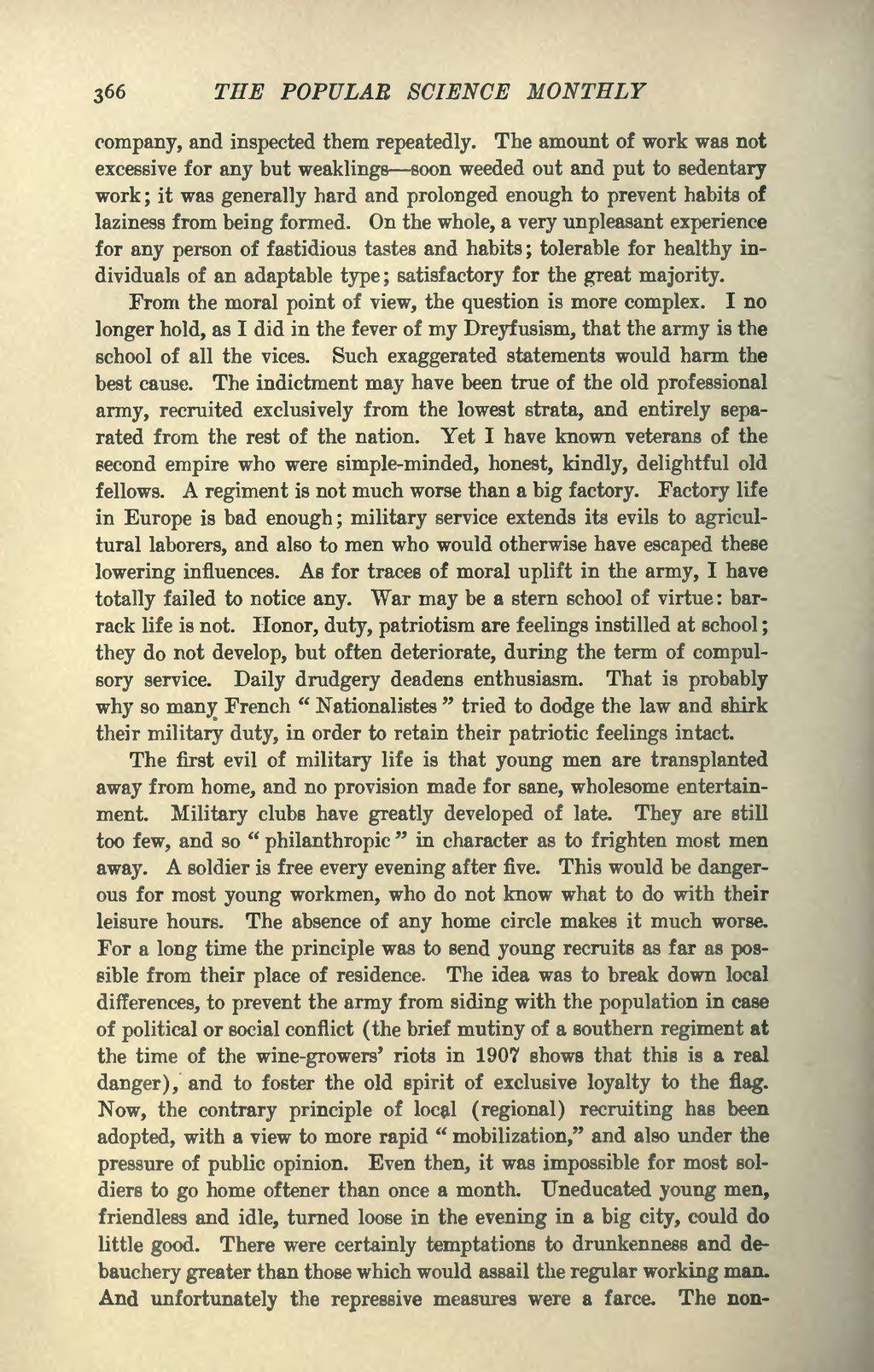company, and inspected them repeatedly. The amount of work was not excessive for any but weaklings—soon weeded out and put to sedentary work; it was generally hard and prolonged enough to prevent habits of laziness from being formed. On the whole, a very unpleasant experience for any person of fastidious tastes and habits; tolerable for healthy individuals of an adaptable type; satisfactory for the great majority.
From the moral point of view, the question is more complex. I no longer hold, as I did in the fever of my Dreyfusism, that the army is the school of all the vices. Such exaggerated statements would harm the best cause. The indictment may have been true of the old professional army, recruited exclusively from the lowest strata, and entirely separated from the rest of the nation. Yet I have known veterans of the second empire who were simple-minded, honest, kindly, delightful old fellows. A regiment is not much worse than a big factory. Factory life in Europe is bad enough; military service extends its evils to agricultural laborers, and also to men who would otherwise have escaped these lowering influences. As for traces of moral uplift in the army, I have totally failed to notice any. War may be a stern school of virtue: barrack life is not. Honor, duty, patriotism are feelings instilled at school; they do not develop, but often deteriorate, during the term of compulsory service. Daily drudgery deadens enthusiasm. That is probably why so many French "Nationalistes" tried to dodge the law and shirk their military duty, in order to retain their patriotic feelings intact.
The first evil of military life is that young men are transplanted away from home, and no provision made for sane, wholesome entertainment. Military clubs have greatly developed of late. They are still too few, and so "philanthropic" in character as to frighten most men away. A soldier is free every evening after five. This would be dangerous for most young workmen, who do not know what to do with their leisure hours. The absence of any home circle makes it much worse. For a long time the principle was to send young recruits as far as possible from their place of residence. The idea was to break down local differences, to prevent the army from siding with the population in case of political or social conflict (the brief mutiny of a southern regiment at the time of the wine-growers' riots in 1907 shows that this is a real danger), and to foster the old spirit of exclusive loyalty to the flag. Now, the contrary principle of local (regional) recruiting has been adopted, with a view to more rapid "mobilization," and also under the pressure of public opinion. Even then, it was impossible for most soldiers to go home oftener than once a month. Uneducated young men, friendless and idle, turned loose in the evening in a big city, could do little good. There were certainly temptations to drunkenness and debauchery greater than those which would assail the regular working man. And unfortunately the repressive measures were a farce. The non-

